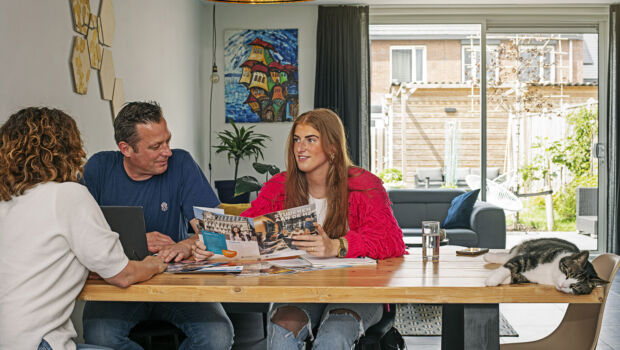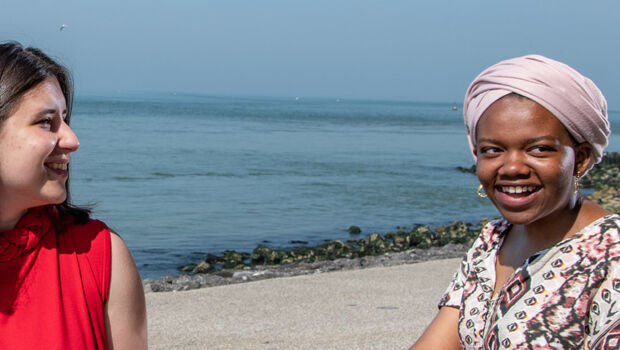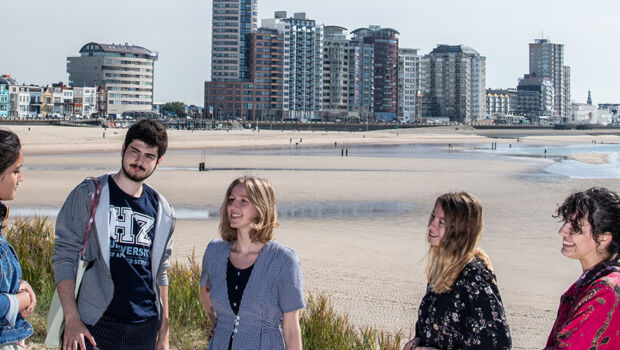When deciding where to study abroad, one of the key choices you'll face is whether to live in a big city or a small one. While both options come with their own unique perks, the experience of studying in a smaller city in the Netherlands might just surprise you in the best way possible.
The big city dream?
There’s no denying the appeal of large cities like Amsterdam, Rotterdam, or The Hague. They’re vibrant, international, and full of life. You’ll find bustling nightlife, endless cultural activities, and large student populations. Big cities also offer plenty of internship opportunities, part-time jobs, and networking events thanks to their economic scale and presence of global companies.
But with all this buzz comes a few challenges. The fast-paced lifestyle can sometimes feel overwhelming, especially when you’re settling into a new country. Big cities also come with a bigger price tag: think higher rent, more expensive transportation, and crowded housing markets. It’s not always easy to find a place to live or to feel truly connected in such a vast environment.
The advantages of smaller cities
Now let’s look at the smaller cities (often overlooked!), but full of hidden gems. Think of places like Middelburg or Vlissingen in Zeeland, both home to HZ University of Applied Sciences. Smaller cities offer a different pace of life: calm, welcoming, and incredibly student-friendly.
Here's why studying in a smaller city might actually be the smarter move:
1. Lower cost of living
Rent, groceries, and daily expenses are significantly more affordable in smaller cities. You’ll be able to enjoy student life without constantly worrying about your budget.
2. Tight-knit community
Smaller towns make it easier to connect with locals and fellow students. You’re more than just a number... you’re part of the community. It’s easier to make friends, get to know your teachers, and feel at home.

"Since HZ is a mid-size university, you get to know each other quite easily, and it’s almost like one big family"
Read the full story3. Safe and peaceful environment
With less noise, less traffic, and lower crime rates, smaller cities offer a safe space to focus on your studies and personal growth. It’s ideal for students who want to balance academic life with well-being.
4. Plenty of nature and outdoor activities
In places like Zeeland, you’re always close to the coast, parks, and cycling paths. You can unwind by the sea or take a relaxing bike ride after class—something that’s hard to come by in busier cities.
5. Unique international experience
While smaller, cities like Middelburg are still international. HZ, for instance, attracts students from all over the world, creating a diverse and inclusive learning environment. The smaller setting actually makes cross-cultural friendships more accessible and meaningful.
Best of both worlds
Studying in a smaller city doesn’t mean you’ll miss out on the big city vibes. The Netherlands has excellent public transport, making day trips to major cities quick and easy. You can study in a peaceful environment during the week and explore the energy of Amsterdam or Rotterdam on the weekend.
So… what’s the verdict?
There’s no one-size-fits-all answer. If you thrive on constant stimulation and fast-paced living, a big city might suit you. But if you’re looking for a supportive, affordable, and personal study experience, a small city like Middelburg could be exactly what you need.
In the end, it’s all about what kind of experience you want. And sometimes, the best decision isn’t the most obvious one.







